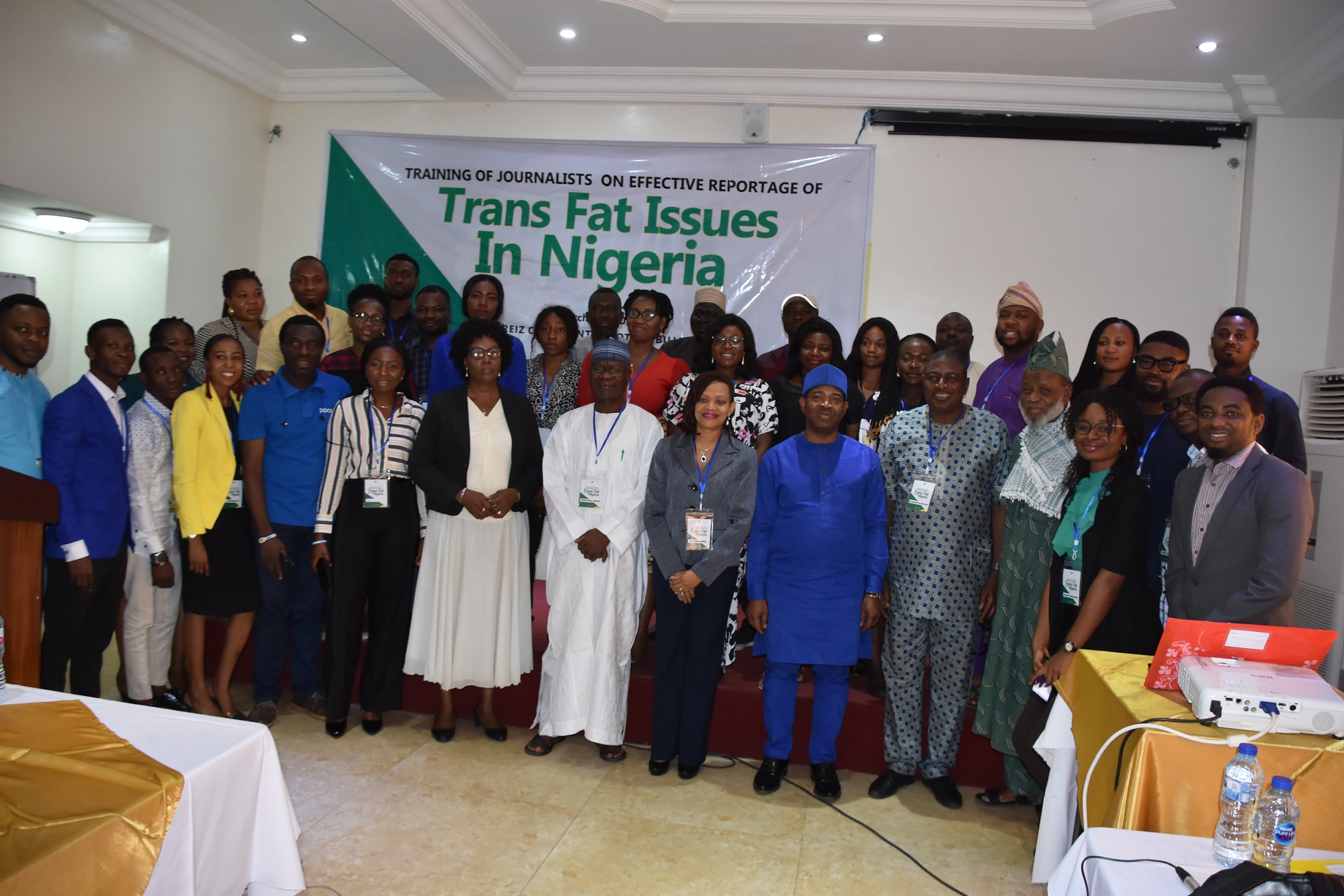The Network for Health Equity and Development (NHED) and Environmental Rights Action/Friends of the Earth, Nigeria(ERA/FoEN) have organized a one-day training for journalists on effective reportage on the danger associated with consumption of food containing Trans Fats (TFAs) in Nigeria.
Akinbode Oluwafemi , deputy executive director, ERA/FoEN in his opening remarks, explained that the training was targeted at building the capacities of Nigerian journalists to understand and exhaustively report on TFAs and its link with poor health for consumers, strength the relationship between journalists, civil society groups and National Agency for Food and Drug Administration and Control (NAFDAC) on TFA; and Sharing knowledge , best practices, research about TFA locally, nationally, regionally and internationally.
The Director-General of NAFDAC, represented by the agency’s Director, Public Affairs, Dr. Jimoh Abubakar observed that there was a clear nexus between culture and diet and that the fast foods culture among the current generation of Nigerians exposes them to transfats consumption. The fallout of this, is the rise in diabetes, obesity, and cardiovascular diseases, among others.
Abubakar said that because of the critical need for intervention at government level, NAFDAC is at the fore of the campaign to eliminate trans fat in Nigerian foods through legislation. According to him, the draft Fats and Oils Regulations 2019 and the Pre- Packaged Foods, Water and Ice Labeling Regulations 2019 currently on NAFDAC website for public input till March 9, 2020, are expected to compel the oils and fats industry to adhere to global standards eliminating trans fats from foods when approved by the agency’s council.
He used the opportunity to stress the importance of the media as a partner in creating awareness on the dangers of trans fats and gauging the perception of the public about the draft Regulations.
Speaking in the same vein, Country Director of NHED, Dr. Emmanuel Sokpo, explained that for any journalist reporting trans fats, a basic foundation on how the body works, particularly the cardiovascular system, is important. Sokpo emphasized the role of a functional heart and the circulatory system in the overall wellbeing of the individual. He noted that consumption of trans fats had exposed Nigerians to a wide range of cardiovascular diseases which include: Coronary heart disease, Cerebro-vascular Disease, Peripheral Arterial disease, Rheumatic Heart Disease, and Congenital Heart Disease. Others are Venous Thrombosis & pulmonary embolism, Heart muscle disease (Cardiomyopathies) and Hypertensive heart disease.
The doctor explained that cardiovascular CVDs are the number one cause of death globally, with more people dying annually from it than from any other cause.
Going further, he said that official statistics show that an estimated 17.9 million people died from CVDs in 2016, representing 31% of all global deaths, and that over three quarters of the deaths take place in low- and middle-income countries like Nigeria.
Dr. Jerome Mafeni, a board member of NHED explained that while fats and oils are an indispensable part of our diet, consuming hydrogenated fats would lead to ill health and death. Mafeni who is also Project Advisor Elimination of TFAs from Nigerian Food Supply cautioned on the intake of chips, burger, and pizza, among others, insisting that in their preparation, transfats are heavily used.
He used the opportunity to counter the fats and oils industry argument that transition to trans fats-free alternatives were expensive, pointing out that, banning TFAs will not change much because there are credible alternatives that will save lives.
Taking a cue from that, Dr. Eva Edwards, Deputy Director, Food Safety and Applied Directorate Division in NAFDAC, took participants through Understanding NAFDAC Efforts in Achieving Trans Fat -Free Nigeria.
Dr. Edwards explained that the media was key in the agency achieving its awareness drive on trans fats. She also gave a breakdown of key provisions of the draft Regulations on Oils and Fats, with emphasis on a proposal that ensures that a product declared Trans fat Free, must not contain more than 1 gram of 100gram of product.
She charged the media toa also spotlight the informal sector that also exposes Nigerians to transfats through bleaching of palm oil and the use and reuse of oils in cooking.
In his intervention, ERA/FoEN Head, Media and Campaigns, Philip Jakpor, re-echoed the need for the media to conduct in-depth research and write incisive reports that will educate Nigerians on TFAs and influence policy directives.


